The Natural Habitat of the Discus Fish
Introduction
Discus fish are widely recognized as some of the most colorful freshwater aquarium fish, which makes them incredibly popular among hobbyists. If you hope to keep discus fish successfully in a captive environment, it’s important you understand their basic needs and tank requirements. This includes understanding where discus fish can be found in the wild and what type of diet they typically eat.
Location
Discus fish are found in Southeast Asia and South America around the Amazon. Discus can’t survive in most of the Amazon, where the water often flows too quickly or is not clean enough. However, they are found swimming in very clean water and in small, Blackwater rivers and lakes, deep pools, shallow streams, creeks, and small lakes off the Amazon River. In the Amazon, discus fish are found around areas that have immense tropical forests and long periods of rain. Discus fish thrive when they receive continuous flows of freshwater.
They live in small groups among submerged tree roots, decayed wood, vegetation, and aquatic grasses, which they often hide behind. The wild discus’ stripes help camouflage them for safety from predators. The natural substrate typically includes sand-like gravel and decomposed tree leaves. Plants, including the Amazon Sword that is shown below, not only provide a protective hiding place, but also serve as natural breeding grounds.
Lighting
Preferring subdued lighting, discus tend to stay in shaded areas during the day, and the low lighting conditions help keep the discus safe from predators. Keep this detail in mind, since putting a discus in a tank with bright overhead lights and crystal clear water may cause it to feel vulnerable and frightened.
Discus Natural habitat
Water conditions
Discus fish appreciate Blackwater areas, which result from tannins and organics that are found in the water, primarily from falling leaves. While you can find tonics on the market that will help create a Blackwater environment, unless you are setting up a biotope with wild discus caught in Blackwater areas (not recommended for a hobbyist), you do not need this additive for proper discus fish care.
The Amazon hosts three main water types. In upper Amazon, you’ll find the “loam-yellow” or “white” water region. In the central region near Rio Negro, the “Blackwater” is found. In the lower region, you’ll see “green-yellow” or “clear water.” Different water types feature different colors of wild discus.
The Amazon’s immense rain forests and copious amounts of rain cause the water to be soft (0-3 dH). Soft water means that very few dissolved solids are found in it. The water’s softness is measured with the total dissolved solids (TDS), the minerals found in the water in parts per million. This means, the lower the TDS, the lower the conductivity of the water. Although discus will breed in several different water conditions, softer water helps with fertilizing the discus eggs and increasing fry sizes. Discus breeders often replicate the low TDS water by using reverse osmosis (RO) systems or buying RO-filtered water from water stores.
In the Amazon, discus water has a pH of around 6.0 to 6.5. In some places, its pH is as low as 4! Its temperature is within the range of 77 – 84º F (25 – 29 º C). In Southeast Asia, discus are found in soft to medium-hard, alkaline water (3-8 dH, pH 7.0 – 8.0) that has temperatures around 81 – 91º F (27 – 33º C).
Types of Food and Feeding habits
In the wild, discus fish feed primarily on zooplankton and other small aquatic organisms like insects and invertebrates. Wild discus fish tend to forage for food throughout the day rather than eating large portions at any one time. Due to the laterally compressed structure of their bodies, these fish cannot tolerate large portions of food, thus overfeeding can be a significant concern with captive discus fish. Wild discus may occasionally feed on plant matter, but they are unlikely to damage live aquarium plants in captivity.

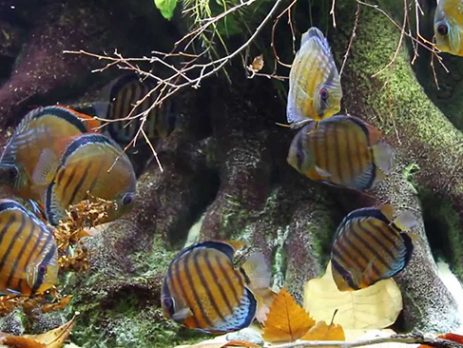

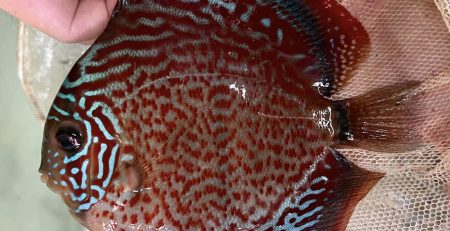

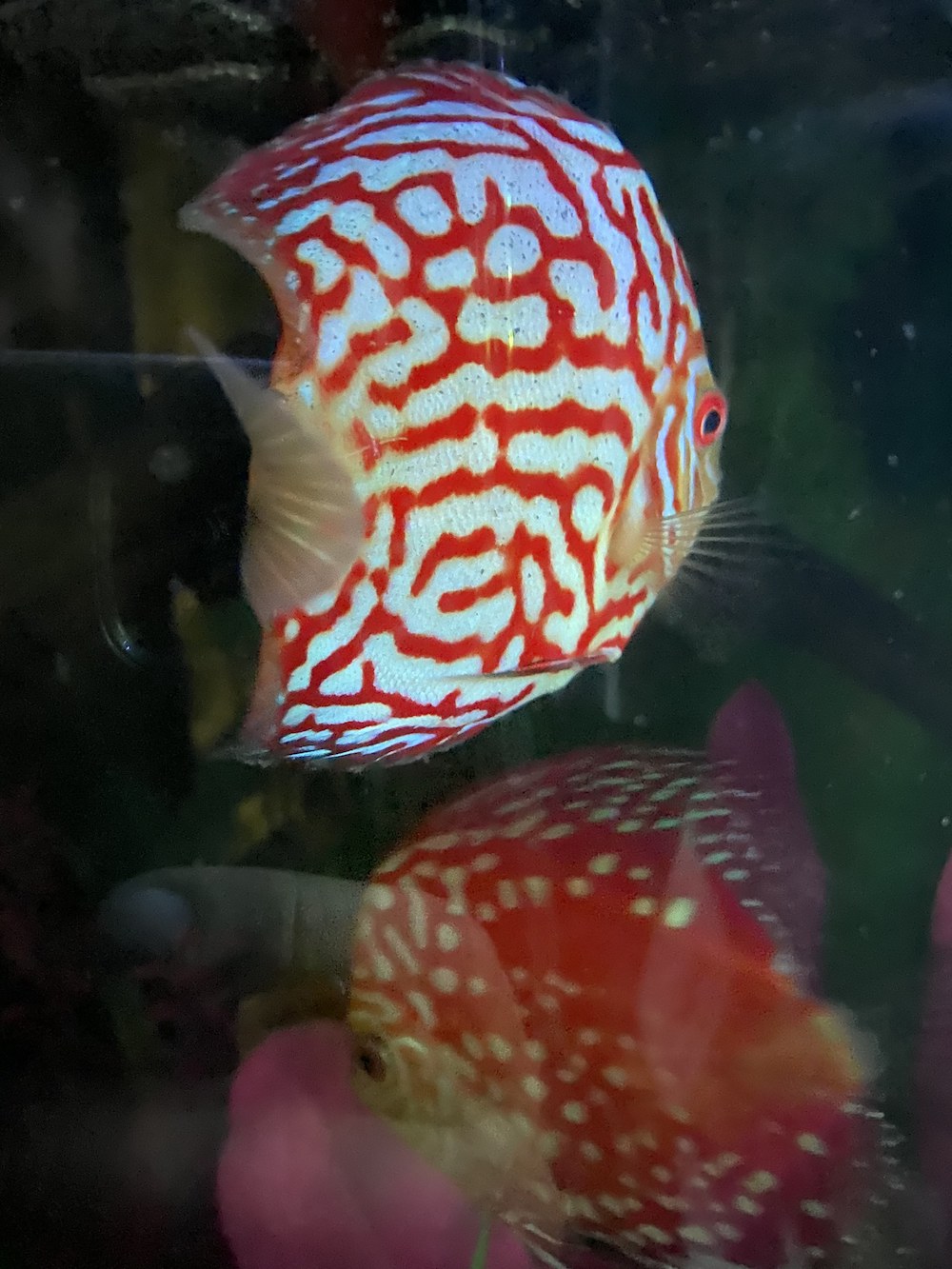
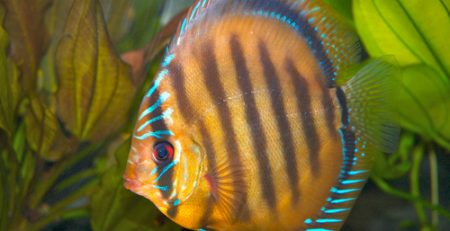
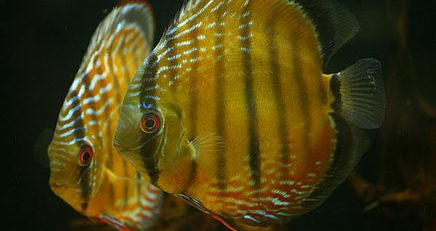
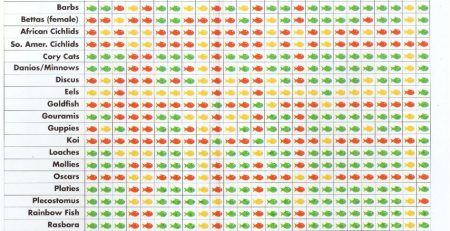
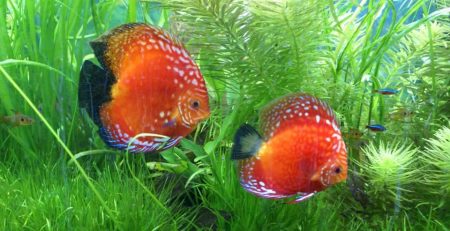
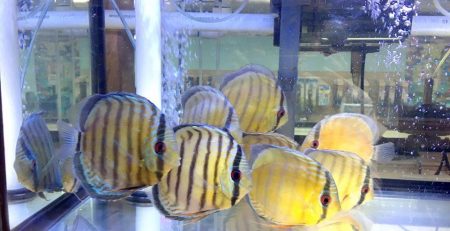
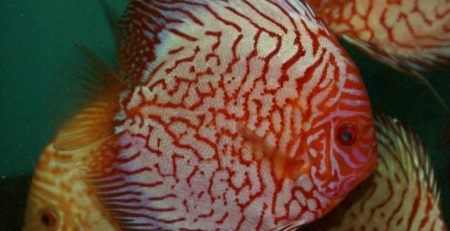
Leave a Reply
You must be logged in to post a comment.